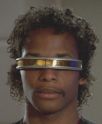|
StratGoatCom posted:Manned stuff on Europa is... complicated, iirc the place gets cooked pretty hard by jupiters rad belts. Sounds like quitter talk.
|
|
|
|

|
| # ? May 20, 2024 16:09 |
|
Let's bring up Nick Bostrom and some of his ideas. I'm a big fan of his - he's a modern analytic philosopher who writes a lot about topics like existential risk, artificial intelligence, and so on. One of Bostrom's most fascinating philosophical contributions the Simulation Argument, which has a rather direct bearing on the subjects touched upon by this thread. It goes like this:quote:At least one of the following propositions is true: The full text of the paper can be found here: https://www.simulation-argument.com/simulation.html What do you think? Do you believe that the premises of his argument are well-founded? Is this a likely Fermi Paradox candidate solution? Restated in Wikipedia: quote:at least one of the following statements is very likely to be true:
|
|
|
|
No, because making a universe simulation so complete as to replicate the laws of physics to the level of granularity we're able to measure is indistinguishable from just making a universe. Also it's insanely anthropocentric and egotistical which is why Elon musk thinks it's true.
|
|
|
|
|
Just from a motivation point of view, Frank Herbert kind of invalidates the whole idea of any "post-human" stages bothering with anything resembling neutrality, whereby this all becomes a rather convoluted Calvinist discussion about why the haves and the have nots are where they are. This seems exceedingly silly. In a conversation about the motivations of beings we could not possibly understand to begin with, if we posit their unintelligible existence in the first place. Which seems a bit cyclical and self-feedbacking.
|
|
|
|
There could be evidence to suggest we’re living in a simulation, like if particles below a certain size were just fuzzy blobs without properties or something, but in the absence of any evidence, it’s a silly argument. Probabilistically speaking, it’s much more likely that I wouldn’t have been born than it is that I would have been, but I was and so that’s not grounds for arguing that I don’t exist. Really, if it makes no difference for how we perceive and move through the universe, it doesn’t really make any difference. How would you test this theory, and what difference would it make if it were true?
|
|
|
|
Antifa Turkeesian posted:Really, if it makes no difference for how we perceive and move through the universe, it doesn’t really make any difference. How would you test this theory, and what difference would it make if it were true? Well, one Voyager or the other is going to clip through the skywall at some point.
|
|
|
|
DrSunshine posted:What do you think? What I think of these propositions, given the arguments: quote:At least one of the following propositions is true: (1) and (2) are most likely true. (1) is likely true because the definition of "posthuman" tends towards sci-fi nonsense, the same kind of nonsense that depicted us having flying cars and robot butlers. Artificial intelligence as a field does not at all seem in any way moving towards a general intelligence as AI researchers predicted, and photorealistic 3d graphics is absolutely nothing like a full-featured computer simulation of reality. (2) is likely true because if we literally have the technology to recreate reality to that level, it would surely be energy-intensive, and that combined with the ethical implications of creating people (such as ourselves) in vast quantities would surely impugn the development of even a small number of such simulations, let along a large number. (1) is vastly more likely to be true than (2), which is vastly more likely to be true than (3). And, of course, this: Antifa Turkeesian posted:How would you test this theory, and what difference would it make if it were true?
|
|
|
|
Antifa Turkeesian posted:What difference would it make if it were true? If God did not exist, it would be necessary to invent him.
|
|
|
D-Pad posted:Yeah I just went down the mage ufo rabbit hole. There is a ton of obviously fake poo poo getting posted, but something definitely went down. There is too much out there from locals who saw poo poo and have video. I seriously doubt it was aliens and most likely military hardware. The only thing for sure is something unusual was in the sky and the military was in the area. Beyond that there is really no way to separate the facts from the bullshit. Still interesting even if it was something boring like a drone or space debris. Why in Brazil though? I doubt they anyone would something that secret in a foreign nation and all due respect to South America, there isn't a robust aerospace industry in that region. Like, I looked up what Brazil's air force has and their fighter it is still the F-5, which was new during the Vietnam War era. The most I can think of is a spy satellite that deorbited. But again, that's just too mundane to just not come out and say like "Yeah some satellite crashed, we already picked it up, here is the crater it left since we can't show you anything else."
|
|
|
|
|
Antifa Turkeesian posted:There could be evidence to suggest we’re living in a simulation, like if particles below a certain size were just fuzzy blobs without properties or something, but in the absence of any evidence, it’s a silly argument. A simulated Universe doesn’t need to have the same laws as its parent universe. It doesn’t have to resemble it in any way. I don’t think there can be a test to find out if you are in a simulation. Having said that, particles that are fuzzy blobs. Wouldn’t that be wild. Or maybe they did other weird things like behave as waves sometimes and not other times.  What if they acted different if they were being observed?  Or borrowed energy from the future sometimes?  Our loving simulation is held together with duct tape. Zesty fucked around with this message at 09:46 on May 20, 2020 |
|
|
|
Fundamentally, the simulation argument is an unholy mix of computer nerds allowed to think they're anything but technicians and philosophy amateurs with too much time and not enough training. It's pointless anyway, as it doesn't really change how interact with the universe unless you know the cheat codes
|
|
|
|
Most of the world thinks we’re living in god’s simulation anyway. The only difference here is a more technologically rooted origin story.
|
|
|
|
|
A GIANT PARSNIP posted:Most of the world thinks we’re living in god’s simulation anyway. The only difference here is a more technologically rooted origin story. It's this. They all want to be techno Jesus. Simulation theory is lame because it's not falsifiable or testable in any way. Just like string theory. Is anyone watching the biggest ideas in the universe series on YouTube with Sean Carrol? It's really good. https://www.youtube.com/playlist?list=PLrxfgDEc2NxZJcWcrxH3jyjUUrJlnoyzX Sean's a subscriber of the many worlds interpretation of quantum mechanics, and he makes some drat good arguments for it over the Copenhagen interpretation.
|
|
|
|
Simulation theory misses the greater truth, which is that our brains are already organic experiential simulators.
|
|
|
|
Kaal posted:Simulation theory misses the greater truth, which is that our brains are already organic experiential simulators. What? Preposterous! Now excuse me while I take a big sip of water and go look at this photo of a woman wearing what I have been told is a blue and black dress.
|
|
|
|
Yeah being able to say "the world is a simulation and we can use it to our advantage in the following ways:" would be different but right now you're just ripping out the abrahamic god's 7 days and tossing in a thousand entry level alien coders making poo poo wages. Fundamentally it's no different from any other origin story - it's mildly entertaining the first time you hear it but without predictive power it's just another folktale.
|
|
|
|
|
The funniest thing about simulation theory was that one alien civilization in Stellaris being technically correct, yet still futile.Antifa Turkeesian posted:What? Preposterous! Now excuse me while I take a big sip of water and go look at this photo of a woman wearing what I have been told is a blue and black dress. It's gold and purple wasn't it?
|
|
|
|
Heck Yes! Loam! posted:Is anyone watching the biggest ideas in the universe series on YouTube with Sean Carrol? It's really good. Sean is an excellent teacher (His GR textbook is the one I used) and I have been watching. I'm always curious to see how different people go about teaching the subject. quote:Sean's a subscriber of the many worlds interpretation of quantum mechanics, and he makes some drat good arguments for it over the Copenhagen interpretation. I don't find his arguments really "drat good," if anything I think they're pretty presumptuous. (And it's kind of ironic that you find them convincing a few sentences after complaining about simulation theory being not falsifiable or testable in any way) But I appreciate that he isn't really attempting to force his preferred interpretation over the others. He's giving understandable weight to it (he's something of an evangelist, after all) but he's not skipping over other interpretations.
|
|
|
|
ashpanash posted:Sean is an excellent teacher (His GR textbook is the one I used) and I have been watching. I'm always curious to see how different people go about teaching the subject. I don't have the knowledge to advocate one position or another, I do find his series to be the best lecture regarding quantum theory I've seen on YouTube. I tried to look at some tensor field math and my brain seized up a bit. I want to understand why the Copenhagen model has persisted so long when everyone seems to agree it is incomplete. The shut up and calculate mentality seems to be strong because it works, but also doesn't even try to answer the larger set of questions begged by QFT. What gives?
|
|
|
|
Heck Yes! Loam! posted:What gives? So, I should qualify this with the following: Sean Carroll is way more accomplished than I am, some random poster on a dead gay forum. Neither of us should be considered the end-all be-all of this question. I'll start by taking issue with Carroll's idea that MWI is not an interpretation but a framework. I think that's taking things way too far, and it doesn't make sense to me. MWI doesn't have different math than any other formulation of QM and it certainly doesn't imply nor predict different results. I'll give him credit for acknowledging that it can't explain the Born rule, but there are much larger problems, in my mind. Far from it being an explanation, I find it to be an utterly contentless philosophical non-starter. Consider what Copenhagen says: The wave function predicts the future evolution of a system until it undergoes an interaction, at which point the wave function 'collapses' and a particle ends up at some point in space, probabilistically, based on the square of the amplitude. Copenhagen doesn't explain wave function collapse at all - but it doesn’t attempt to. Copenhagen is primarily used to teach, and it's really good for that. Here's what MWI says: The wave function predicts the future evolution of a system until it undergoes an interaction, at which point the wave function decoheres and a particle ends up at every possible point in space it could occupy, we just only measure one of them. The chances of it ending up where it did is 100%. That's tautological. I don't know how you can teach with MWI, but I do think Carroll is a good enough teacher to find a way. Something to consider is that the Everettian "wave function of the universe" is really no different than a quantum version of Laplace's Demon. Ergo, the many worlds interpretation can just as easily be applied to classical mechanics - which underscores how useless it is as a way of explaining quantum mechanics. I admit I was kind of shocked when Carroll made a point about how the probability interferes in the wave function, and that this doesn't happen anywhere else in physics, so why should we treat it differently? It surprised me because he's been hosting lectures for two weeks about why quantum mechanics is different from other forms of mechanics, and why we had to invent new ways of calculating things entirely because attempting to treat it the same as other forms of mechanics leads to grossly incorrect predictions. As for the differentiation between psi-ontic and psi-epistemic interpretations of quantum mechanics, I fall on the psi-epistemic side. For one thing, all of physics is fundamentally epistemic - my car does not take the second derivative of position when I press the pedal to accelerate, it just does what it does. Our math is our way of working that out. In addition, there's another extremely valuable tool that we have been using in mathematics for hundreds of years to make accurate calculations, even though it never appears in actual measurements - it's called i. We never measure complex numbers emerging out of our systems, only real ones, but that doesn't mean that i is some sort of misunderstood real number. No, it's a tool. A useful one, but a tool nonetheless. ashpanash fucked around with this message at 17:37 on May 21, 2020 |
|
|
|
Zesty posted:Having said that, particles that are fuzzy blobs. Wouldn’t that be wild. Or maybe they did other weird things like behave as waves sometimes and not other times. this doesn't mean what you think it does. Wave-particle duality simply means that in certain situations, a model of the phenomenon as a wave or as a particle is more useful. In actual fact, the underlying phenomenon is fully described by a more fundamental model, the quantum field theory. That's also still not what a phenomenon is. e; it'd be like saying that when you take a photo of a person or make a painting of a person, that actually means the person is sometimes a photo and sometimes a painting. No, they're just representations of a person. dex_sda fucked around with this message at 17:45 on May 21, 2020 |
|
|
|
A few thoughts on the simulation stuff. Our universe does have a clear resolution we actually know. Particle energy levels don't shift in a continuous fashion, but by steps of the minimum energy level. Good old Planck figured out the maximum frequency of any wave and a maximum temperature of any particle, which are of course tied together. There are a lot of hard limits to things in physics. A higher level universe that had different limits or none, or had lesser or no entropy, would allow for an arbitrary amount of simulations of entire universes like ours with relatively no cost, just as we can simulate simpler things easily enough. There is absolutely no point assuming a universe that would simulate ours would be similar to ours, because that's impossible for quite a number of reasons, but mostly the energy density for such a simulation would be impossible. A box can't contain itself. I'm not personally going to say yes or no to the simulation thing because it's in my opinion totally meaningless since you can't do anything with the knowledge and it's not verifiable or falsifiable. I'm just saying that our universe has a suspicious level of granularity to it. Nurge fucked around with this message at 01:16 on May 22, 2020 |
|
|
|
dex_sda posted:this doesn't mean what you think it does. Wave-particle duality simply means that in certain situations, a model of the phenomenon as a wave or as a particle is more useful. I'm so glad I didn't go into particle physics.
|
|
|
|
Nurge posted:A few thoughts on the simulation stuff. Our universe does have a clear resolution we actually know. Particle energy levels don't shift in a continuous fashion, but by steps of the minimum energy level. That's only true in bound systems. For instance, the thermal radiation from an atom is quantized based on the fine structure, but any given individual photon can be at any arbitrary energy.
|
|
|
|
A point to make about our experiments being too accurate to be possible for a simulation. The simulation only needs to provide that level of accuracy for the small amount of time for the relatively small amount of observers. For all we know everything you touch is hollow until someone cuts it open, then the simulation fills it. Most importantly, there is no reason to believe causality meaningfully exists in a simulation, the simulation can pause and rewind whenever someone digs a little too deep and fill something there post-hoc. Imagine all of the experiments whose results couldn't later be verified and duplicated by others, each incident could be an example of there being a "lag" between the simulation engine catching up to our instruments. What is a second for us, could be years for people outside the simulation, generating each frame at a framerate of their choosing to adjust the resolution of the experiment.
|
|
|
|
So the simulation argument can't be disproven or falsified because it's infinitely alterable to the point where any discrepancy can be explained away. This renders it absolutely meaningless. How many simulated angels are dancing on the simulated head of that simulated pin?
|
|
|
|
ashpanash posted:So the simulation argument can't be disproven or falsified because it's infinitely alterable to the point where any discrepancy can be explained away. This renders it absolutely meaningless. How many simulated angels are dancing on the simulated head of that simulated pin? It's just a more legitimate Roko's Basilisk you don't need to get upset at it, you're just wasting your time if you let it get the better of you. Lot's of things are not falsifiable, like, is there really a god? What's the meaning of life? It's a philosophical question that happens to have a conveniently plausible scientific basis for it; along with, "Do cloned individuals who have the same memories of the original have souls?", is the Mind Separate from the Body? What are Qualia? You can't prove or disprove it, most thought experiments as I understand are like that, most of the interesting ones anyways; and that's the point. They are meant to challenge preconceived notions and deeply held biases like "God does not play dice" and make you more introspective and think about your first principles. If you accept the fact that you might be Son Wukong living in the hand of the buddha it's interesting to extrapolate what that may very well mean about your own existence. I look at it, accept that it has a certain degree of validity to it, my mind goes, "Oh that's interesting." And then my brain pulls the plug on it in self preservation and I carry on with my life.
|
|
|
|
What makes it more legitimate, that it's technology-based? I don't have an issue with the argument as philosophy, it's a fine thought experiment. I do have an issue with the idea that, because it's couched in science-y sounding terms, it somehow is more believable or plausible than any other magical, non-testable just-so story about the nature of existence.
|
|
|
|
ashpanash posted:What makes it more legitimate, that it's technology-based? It's more legitimate because there is no theoretical principle of computing, neither the pigeonhole principle or the halting problem, that say you couldn't simulate an approximation of reality realistic enough to fool the simulated sentient lives living within it. Most importantly, on the other end of things we've already posited things like Black Hole civilizations or matroshka brains specifically to simulate reality as a means of hitting the snooze button on the end of reality by trillions of years. If a civilization wished to create a simulation of reality convincing enough to live in to utilize time dillation like effects to continuing living to extend out the lifespan of the universe and prolongue heat death, then its perfectly reasonable they might simulate some fake realities with fake sentient beings (or sentient beings from their own civilization who had their memories wiped) to test the engine. Basically since there are a combination of convincing arguments for it, and no convincing arguments against it, its certainly in the realm of plausible. Its plausibility thus serves to be the basis for some interesting thought experiments as a result, though experiments much more deeply rooted in our current understanding of reality than say, p-zombies. It's believability and plausibility doesn't mean it is, there's a very fine distinction there.
|
|
|
|
Raenir Salazar posted:It's more legitimate because there is no theoretical principle of computing, neither the pigeonhole principle or the halting problem, that say you couldn't simulate an approximation of reality realistic enough to fool the simulated sentient lives living within it. Most importantly, on the other end of things we've already posited things like Black Hole civilizations or matroshka brains specifically to simulate reality as a means of hitting the snooze button on the end of reality by trillions of years. If a civilization wished to create a simulation of reality convincing enough to live in to utilize time dillation like effects to continuing living to extend out the lifespan of the universe and prolongue heat death, then its perfectly reasonable they might simulate some fake realities with fake sentient beings (or sentient beings from their own civilization who had their memories wiped) to test the engine. The point is it's useless at predicting anything. It's not any more useful for answering any real question than any other creation myth.
|
|
|
|
Heck Yes! Loam! posted:The point is it's useless at predicting anything. It's not any more useful for answering any real question than any other creation myth. Okay and? I don't think the thread is limited to only things we can predict or prove to be true (see the five pages of UFO chat). I don't think thought experiments are ever meant to be predictive either, they are just meant to be interesting to discuss, like most philosophy. It's about exploring the ramifications of your axioms. "If this is true, what does it mean? What else does this affect?" It's Scary Fridge Logic writ large. I don't think anyone here is claiming it was predictive; someone did try to say it couldn't be true because of X, and I provided a counterexample/explanation as to why you could work around X because of Y. I'm not sure what Ashpanash's response is supposed to be about, saying it can't be proven or disproven, or that it isn't predictive or not, is meaningless to me. There are things that could be true and also be useless to us; or false and we don't know its false; but whats important is that it's fun.
|
|
|
|
Wittgenstein posted:Wovon man nicht sprechen kann, darüber muß man schweigen.
|
|
|
|
The five pages of UFO chat were loving awful yet somehow no worse than seeing posts going "well, ashktually" on people dunking Elon Musk's new age bougie horseshit.
Conspiratiorist fucked around with this message at 03:02 on May 22, 2020 |
|
|
|
Conspiratiorist posted:The five pages of UFO chat were loving awful. Username / post combo are great. And 
|
|
|
|
So does anyone know about this claim that because NASA detected neutrinos coming out of the ground in Antarctica(?), we’ve found evidence of another universe where time runs backwards? It seems like a few steps in that deduction have been left out of accounts by the lay press: https://www.cnet.com/news/nasa-did-not-find-evidence-of-a-parallel-universe-where-time-runs-backwards/
|
|
|
|
Conspiratiorist posted:The five pages of UFO chat were loving awful. Look, it let me take a break okay? I had no stake in that conversation, it was great.
|
|
|
|
Antifa Turkeesian posted:So does anyone know about this claim that because NASA detected neutrinos coming out of the ground in Antarctica(?), we’ve found evidence of another universe where time runs backwards? It seems like a few steps in that deduction have been left out of accounts by the lay press: Quoted from Forbes: https://www.forbes.com/sites/jamiec...s/#2405a53c646d quote:Here’s what Ibrahim Safa of UW–Madison, who was a lead author on a research paper about the experiment in question in Antarctica, thinks about the current spate of “news” stories that associate his research with evidence for a parallel universe: https://twitter.com/IbrahimSafa1/status/1263333870323339271
|
|
|
|
Heck Yes! Loam! posted:I want to understand why the Copenhagen model has persisted so long when everyone seems to agree it is incomplete. The shut up and calculate mentality seems to be strong because it works, but also doesn't even try to answer the larger set of questions begged by QFT.
|
|
|
|
ashpanash posted:Consider what Copenhagen says: The wave function predicts the future evolution of a system until it undergoes an interaction, at which point the wave function 'collapses' and a particle ends up at some point in space, probabilistically, based on the square of the amplitude. Copenhagen doesn't explain wave function collapse at all - but it doesn’t attempt to. Copenhagen is primarily used to teach, and it's really good for that. ashpanash posted:Here's what MWI says: The wave function predicts the future evolution of a system until it undergoes an interaction, at which point the wave function decoheres and a particle ends up at every possible point in space it could occupy, we just only measure one of them. The chances of it ending up where it did is 100%. That's tautological. I don't know how you can teach with MWI, but I do think Carroll is a good enough teacher to find a way. Copenhagen forces you to accept a few behaviors as just "the way things are" without even attempting to provide a rationale. Once you accept them, it's true that you can learn QM and crunch the numbers. I suppose MWI does this to some extent too, but it does so in a way that, to me anyway, is more physically satisfying and with fewer gaps. Like you have some underpinning of what "happens" during decoherence which is consistent with the results, and which Copenhagen interpretation does not provide. I.e. the wave function doesn't "just collapse" because you "poked at it," but rather it shatters, along with you, and with the different pieces unable to interact with one another from that point. MSDOS KAPITAL fucked around with this message at 09:39 on May 22, 2020 |
|
|
|

|
| # ? May 20, 2024 16:09 |
|
seems like that's getting into physics professor walks into classroom, pulls out a pistol, puts it to their temple, and pulls the trigger, but nothing happens "If you think that's shocking, you should see the looks on your faces in all the versions where it didn't misfire!" territory granted, obviously we know things can work completely differently based on their mass and velocity
|
|
|
|
































